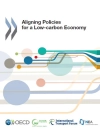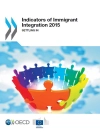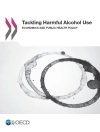Based on an investigation of the WTO process and local protectionisms, Yining Ding’s new book presents interesting research results in the following fields:- The interests of China and other countries in the WTO; – the historic and cultural background and economic incentive of regional protectionisms, the different influences of regional politicians on the reform and opening policy;- the administrative market monopoly during the transition economy and the route dependent behaviour of the reform and the local officials;- the ‘game’ between central and local government;- the important role of Guanxi and its influence on the protective behaviour in relation to justice, abuse of administrative power, forged goods and the grabbing economy, foreign trade, and FDI; – Guanxi, rent-seeking and the structure of regional seigneur power;- the establishment of a model of different degrees of local protectionisms of sub-national governments.Yining Ding presents an empirical analysis and theoretical contributions to research on local protectionism and its influence on the post-WTO market in China and provides an overview of the Chinese status quo since accession into the WTO with up-to-date economic data. His book should serve economics majors, students in other areas with an interest in China and businessmen, investors and engineers who want to investigate or work in China well. In addition, this work should provide a guide or tool for readers to observe the current Chinese social development through different eyes.
关于作者
Yining DING was born in 1962 in Nanjing, China.He studied Civil Engineering at Innsbruck University, where he received the degree of “Dipl.-Ing.” in 1995, and the degree of “Doctor technicae” in 1998 and also completed his Post-Dr. in 2000. From 1999 – 2006, he also studied at the Faculty of Social and Economic Sciences at Innsbruck University, and received the degree of “Doctor rer.soc.oec.” in 2006. Since 2001, he is Professor at the Department of Civil Engineering of Dalian University of Technology.His research includes:I) New development of building materials, Fibre reinforced concrete, Structure repair, Recycling and ecological concrete. II) WTO, Trade Barriers, Regional Protectionism.












